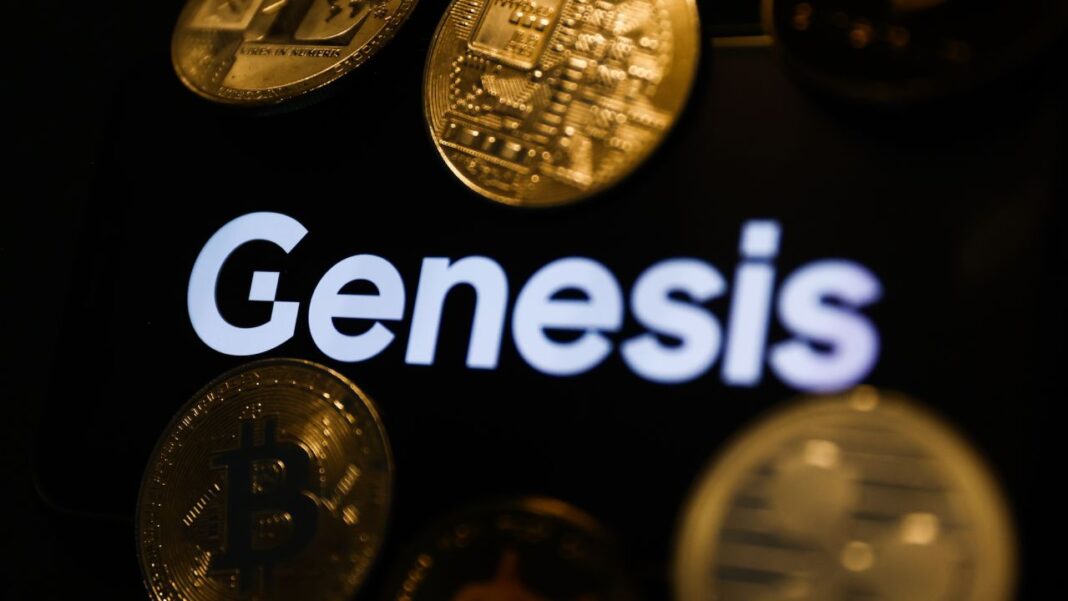The lending unit of crypto firm Genesis filed for U.S. bankruptcy protection on Thursday, owing creditors at least $3.4 billion, after being toppled by a market rout along with the likes of exchange FTX and lender BlockFi.
Genesis Global Capital, one of the largest crypto lenders, froze customer redemptions on Nov. 16 after the collapse of major exchange FTX sent shockwaves through the crypto asset industry, fuelling concern that other companies could implode.
Genesis is owned by venture capital firm Digital Currency Group (DCG).
Its bankruptcy filing is the latest in a string of crypto failures triggered by a market collapse that wiped about $1.3 trillion off the value of crypto tokens last year. While bitcoin has rallied so far in 2023, the impact of the market collapse has continued to hit companies in the highly interconnected sector.
The bankruptcy “doesn’t come as a shock to the markets,” said Ivan Kachkovski, currency and crypto strategist at UBS. “It remains to be seen if the chain effect would go on.”
“However, given that the funds have already been frozen for over two months and no other large crypto company reported an associated weakness, it’s likely that the contagion would be limited.”
Genesis’ lending unit said it had both assets and liabilities in the range of $1 billion to $10 billion, and estimated it had more than 100,000 creditors in its filing with the U.S. Bankruptcy Court for the Southern District of New York.
Genesis Global Holdco, the parent group of Genesis Global Capital, also filed for bankruptcy protection, along with another lending unit Genesis Asia Pacific.
Genesis Global Holdco said in a statement that it would contemplate a potential sale, or a stock-related transaction, to pay creditors, and that it had $150 million in cash to support the restructuring.
It added that Genesis’ derivatives and spot trading, broker dealer and custody businesses were not part of the bankruptcy process, and would continue their client trading operations.
CREDITORS’ CLAIMS
Genesis owes its 50 biggest creditors $3.4 billion, according to Reuters’ calculations from the bankruptcy filing. Its largest creditor is crypto exchange Gemini, which it owes $765.9 million. Gemini was founded by the identical twin cryptocurrency pioneers Cameron and Tyler Winklevoss.
Genesis was already locked in a dispute with Gemini over a crypto lending product called Earn that the two firms jointly offered to Gemini customers.
The Winklevoss twins have said Genesis owed more than $900 million to some 340,000 Earn investors. On Jan. 10, Cameron Winklevoss called for the removal of Barry Silbert as the chief executive of Digital Currency Group.
About an hour after the bankruptcy filing, Cameron Winklevoss tweeted that Silbert and Digital Currency Group continued to deny creditors a fair deal.
“Unless Barry (Silbert) and DCG come to their senses and make a fair offer to creditors, we will be filing a lawsuit against Barry and DCG imminently,” Winklevoss said in his tweet thread.
DCG did not immediately respond to a Reuters request for comment on the tweets.
Amsterdam-based crypto exchange Bitvavo, said in December it was trying to recover 280 million euros ($302.93 million) which it had lent to Genesis.
Bitvavo said in a blog post on Friday that talks on the repayment “have not yet led to an overall agreement that works for all parties concerned” and that it would continue to negotiate.
The bankruptcy filing “brings the process of negotiations to calmer waters,” Bitvavo said.
LENDING BUSINESS
Genesis brokered digital assets for financial institutions such as hedge funds and asset managers and had almost $3 billion in total active loans at the end of the third quarter, down from $11.1 billion a year earlier, according to its website.
Last year, Genesis extended $130.6 billion in crypto loans and traded $116.5 billion in assets, according to its website.
Its two biggest borrowers were Three Arrows Capital, a Singapore-based crypto hedge fund, and Alameda Research, a trading company closely affiliated with FTX, a source told Reuters. Both are in bankruptcy proceedings.
Three Arrows debt to Genesis was assumed by its parent company Digital Currency Group (DCG), which then filed a claim against Three Arrows. DCG’s portfolio companies also include crypto asset manager Grayscale and news service CoinDesk.
Crypto lenders, which acted as the de facto banks, boomed during the pandemic. But unlike traditional banks, they are not required to hold capital cushions. Earlier this year, a shortfall of collateral forced some lenders – and their customers – to shoulder large losses.





